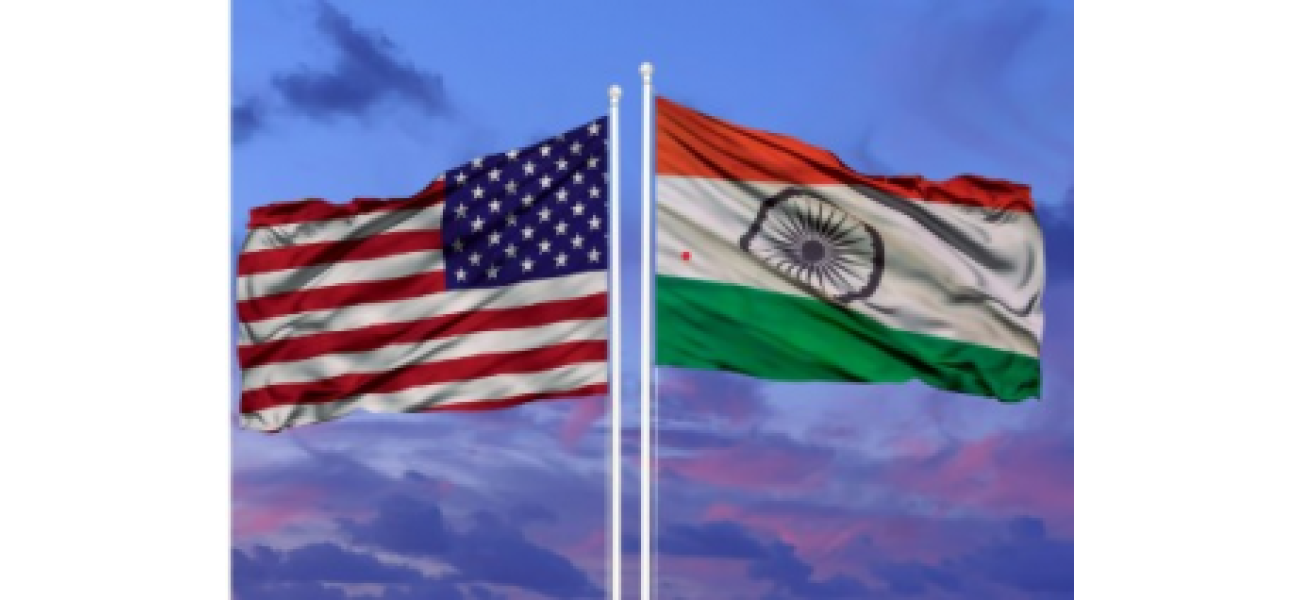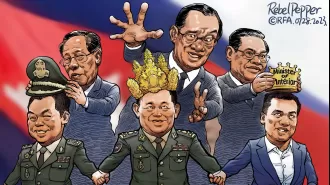Having to defend oneself or react to a difficult situation.
Trump recently imposed tariffs on India and threatened penalties for buying Russian oil and arms, causing economic turmoil. He also made dismissive comments about India.
August 4th 2025.

Last week, the United States President, Donald Trump, caused quite a stir in India when he imposed a 25% tariff and additional penalties for India's purchase of Russian oil and arms. This sent the financial markets into a downward spiral, and to make matters worse, Trump went on to remark that he doesn't care if India's "dead economy" implodes even further. This has left India scrambling to figure out how to handle this ruthless treatment from the US. It wasn't long ago that Trump saw India as a major strategic partner, and both he and Prime Minister Narendra Modi had agreed to boost bilateral trade between the countries. However, Trump's sudden change in attitude has left India in a precarious position.
There are a few factors that may have contributed to Trump's hardened stance on India. One of them is India's continued imports of oil and military equipment from Russia, which goes against the US-led Western order. This has caused tension between the US and India, as the West sees this as supporting Russia's actions in Ukraine, which they have imposed sanctions on. Trump, in particular, seems to have made this a key focus of his India policy, especially after his unsuccessful attempts to persuade Russian President Vladimir Putin to agree to a ceasefire in Ukraine. It appears that Trump is now sending a warning to India that they will face consequences if they do not align with the West.
Another reason for Trump's change in attitude could be due to the lack of progress in reaching a bilateral trade deal between India and the US. The US is pushing for India to open up its agriculture and dairy sectors to American imports, and they are also looking for more relaxed rules on data storage and digital trade. Unfortunately, India's current lack of experts in global affairs and economics has made it difficult to navigate these negotiations effectively. This has led to failures in both foreign and economic policies, which has put India in a vulnerable position.
One of the most significant reasons for Trump's shift in attitude towards India could be their refusal to acknowledge his role in the ceasefire between India and Pakistan after a military confrontation in 2022. Trump has repeatedly claimed credit for this truce and has even suggested that he deserves a Nobel Peace Prize for it. However, Indian authorities have denied giving him this credit, which may have upset him. This has strained the relationship between the two countries, which has been steadily growing over the last 25 years.
In recent years, India and the US have proudly called themselves "engaged democracies," moving away from their previous label of "estranged democracies" during the Cold War era. The bond between the two countries has only grown stronger, with the signing of the India-US civil nuclear deal in 2008. However, Trump's unpredictable and transactional nature has put India in a difficult position, and their lack of a cohesive and effective foreign policy has limited their options for handling this situation. It remains to be seen how India will navigate this challenging relationship with the US in the years to come.
There are a few factors that may have contributed to Trump's hardened stance on India. One of them is India's continued imports of oil and military equipment from Russia, which goes against the US-led Western order. This has caused tension between the US and India, as the West sees this as supporting Russia's actions in Ukraine, which they have imposed sanctions on. Trump, in particular, seems to have made this a key focus of his India policy, especially after his unsuccessful attempts to persuade Russian President Vladimir Putin to agree to a ceasefire in Ukraine. It appears that Trump is now sending a warning to India that they will face consequences if they do not align with the West.
Another reason for Trump's change in attitude could be due to the lack of progress in reaching a bilateral trade deal between India and the US. The US is pushing for India to open up its agriculture and dairy sectors to American imports, and they are also looking for more relaxed rules on data storage and digital trade. Unfortunately, India's current lack of experts in global affairs and economics has made it difficult to navigate these negotiations effectively. This has led to failures in both foreign and economic policies, which has put India in a vulnerable position.
One of the most significant reasons for Trump's shift in attitude towards India could be their refusal to acknowledge his role in the ceasefire between India and Pakistan after a military confrontation in 2022. Trump has repeatedly claimed credit for this truce and has even suggested that he deserves a Nobel Peace Prize for it. However, Indian authorities have denied giving him this credit, which may have upset him. This has strained the relationship between the two countries, which has been steadily growing over the last 25 years.
In recent years, India and the US have proudly called themselves "engaged democracies," moving away from their previous label of "estranged democracies" during the Cold War era. The bond between the two countries has only grown stronger, with the signing of the India-US civil nuclear deal in 2008. However, Trump's unpredictable and transactional nature has put India in a difficult position, and their lack of a cohesive and effective foreign policy has limited their options for handling this situation. It remains to be seen how India will navigate this challenging relationship with the US in the years to come.
[This article has been trending online recently and has been generated with AI. Your feed is customized.]
[Generative AI is experimental.]
0
0
Submit Comment





